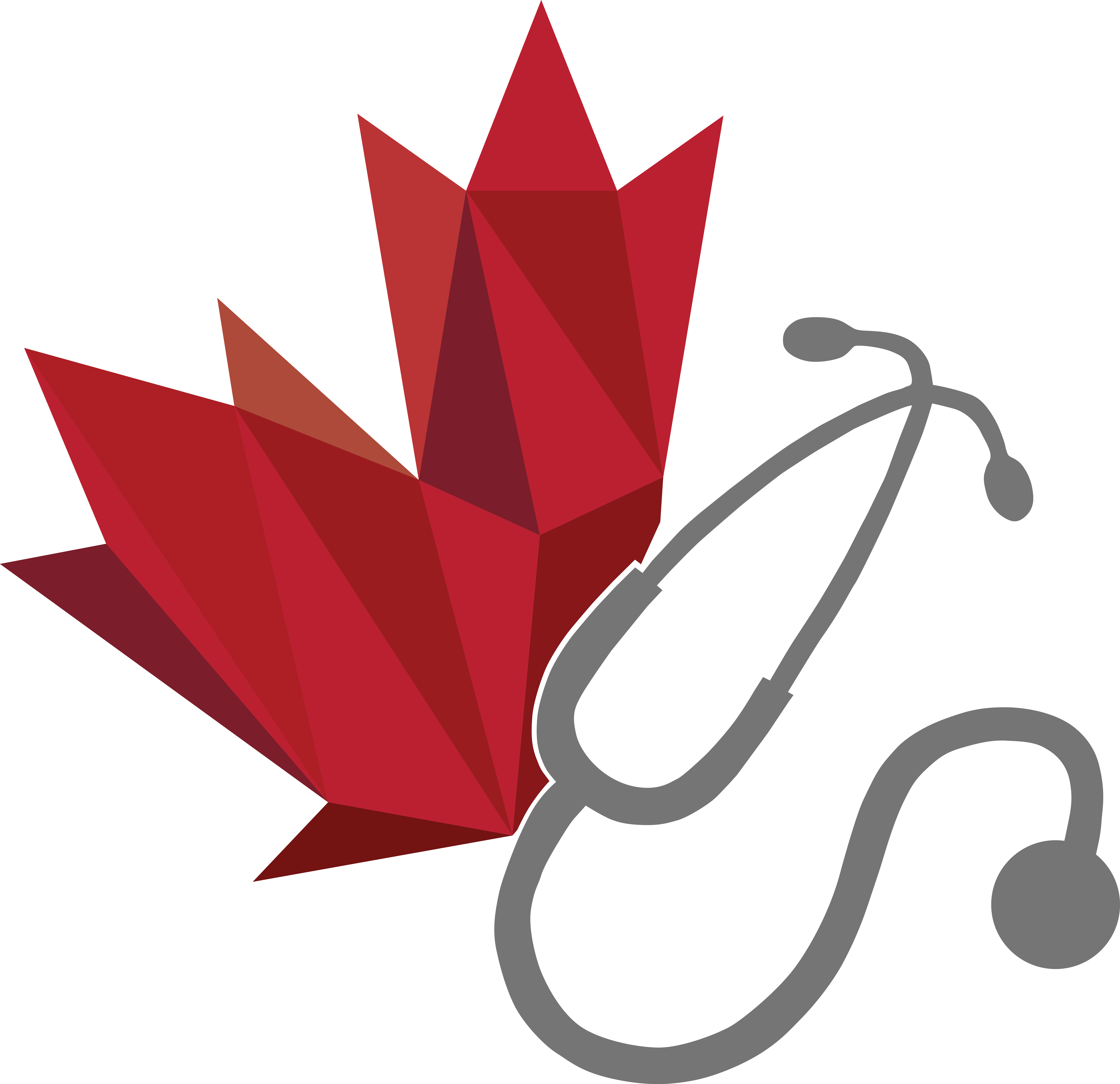About the CFMS
The CFMS is an organization representing over 8,000 medical students from 15 Canadian medical student societies from coast to coast. We represent medical students to the public, to the federal government, and to national and international medical organizations.- Le français suit -
What is the CFMS Wellness Challenge?
The CFMS Wellness Challenge is a month-long challenge divided into four week-long focus areas (Nutritional Wellness, Mental Wellness, Physical Wellness, Social/Relationship Wellness). The aim of the Challenge is to support and improve medical student wellness through encouraging members to try new health-supporting behaviours and build health habits. The theme for 2018 is “Small Steps: Accessible Wellness”, with a focus on small but meaningful behaviour changes that are accessible to all Canadian medical students who wish to participate.
What is the rationale behind this year’s theme and focus?
The theme and focus for the CFMS Wellness Challenge for 2018 were chosen based on feedback received from past participants, school representatives, and other CFMS members. CFMS recognizes that medical students are often busy, not necessarily in full control of their schedules, and may be struggling with health challenges of their own. The Wellness Challenge is not meant to introduce stress or anxiety, or be detrimental to any individual’s health, and this year’s Challenge and its components have been designed in an intentional way that is informed by this knowledge.
The “Small Steps” component of the theme is meant to reinforce that all changes in a healthier direction are positive, and that it’s better to take any step closer to better wellness than it is to stay put, regardless of how small that step may be.
The “Accessible Wellness” component of the theme refers first to making the Challenge more accessible by focusing on “small steps” (i.e. low-barrier; single time point) challenge components, but refers further to multiple aspects of accessibility:
- Accessibility with respect to location.
- Accessibility with respect to time.
- Accessibility with respect to participant ability/health.
For additional explanation of our attempts to address these aspects of accessibility, please see the Additional Information/Notes section below.
Why should I participate?
Participation benefits include:
- Improving your health!
- Being a part of a national attempt to increase medical student wellbeing!
- Receiving one of the participation incentive prizes!
How do I participate?
In order to participate in the CFMS Wellness Challenge 2018, participants must do the following:
- Self-register at the following link: www.goo.gl/forms/HnXMeT7CiWoL9b3D2.
- Complete a minimum of one challenge over the course of the four weeks. Each completed challenge provides you with another chance to win a participation incentive prize.
- Self-report your challenge completions when emailed the weekly report-in survey.
What if I have questions, concerns, etc.?
Emily Macphail, the National Wellness Officer, would be happy to answer questions and receive other feedback regarding the CFMS Wellness Challenge. She can be reached at [email protected]. Questions may also be directed towards your medical school’s representative on the CFMS Wellness Committee if desired.
Additional Information/Notes
Accessibility Considerations
In designing the CFMS Wellness Challenge for 2018, we have attempted to address three particular aspects of accessibility as follows:
- Accessibility with respect to location: Clerks and medical students not based at their medical school’s main campus have had difficulty in the past completing challenge components that were specific to attending a particular event or doing challenge components as a full team, since they may not be able to be physically in the location that the event is being held, or may not be able to be in the same geographic location as other students (i.e. their teammates). This year, teams are not required, and students not attending events will be able to obtain the same number of draw entries as students who are able to attend.
- Accessibility with respect to time: Although it is recognized that all medical students are busy, clerks have even more demands on their time than pre-clerks do. Thus, clerks have further been discouraged from participating in past iterations of the CFMS Wellness Challenge due to the amount of time that some of the challenge components may have required, or due to not having schedules which allowed them to attend events or get together with their teammates.
- Accessibility with respect to participant ability/health: Just as with the rest of the population, medical students also have differences in physical or mental health levels and abilities which may prevent them from being able to undertake certain challenge components in a way that is not detrimental to their wellbeing. This year the challenge options presented to students have been designed with optional modifications for students to apply based on their individual abilities and needs.
Challenge Modifications
CFMS appreciates that being a medical trainee does not exempt a student from having physical or mental health struggles of their own. This means that certain challenge options may not be health-promoting for all students; therefore, optional modifications have been added for those challenge options which may not be feasible or healthful for an individual student. It is the responsibility of each participant to assess their own health situation and decide which options are the best for their combined physical and mental wellbeing and whether they should apply a modification. Modifications do not need to be reported to anyone and will result in the participant obtaining the same number of draw entries as the non-modified options. If at any point a participant notices a challenge option that appears to have the potential to be inaccessible or detrimental health-wise, they are encouraged to email the National Wellness Officer ([email protected]) so that this can be addressed.
Challenge Components
There are three categories of Challenge components for 2018:
- Weekly One-Time Challenges: A minimum of ten challenge options will be released each week in accordance with the weekly theme. One draw entry can be earned for each completed option; however, the maximum number of entries earned is seven, and a draw entry can only be earned the first time that a particular challenge option is completed.
- Week-Long Daily Challenges: Each week will have a week-long daily challenge aligning with its theme. One draw entry can be earned for each day of that week that a participant completes the daily challenge.
- Month-Long Habit Challenge: Since making small changes is the most sustainable way to improve health and wellness long-term, and building healthy habits requires repetition, one of the main focuses of the Wellness Challenge this year is to help incentivize medical students to build towards having even just one more healthy habit in their lives. Participants can receive one draw entry for each day that they complete the healthy habit that they have selected as their month-long habit. Individuals know themselves and their health best, and so each participant will select their own month-long habit challenge at the start of the Wellness Challenge. This habit will be different for different students, and students have the option of selecting one of the suggested habits, or of creating their own.
Le Défi bien-être de la FEMC 2018 – À petits pas : le bien-être accessible (22 janvier - 18 février)
Qu’est-ce que le Défi bien-être de la FEMC?
Le Défi bien-être de la FEMC est un défi d’une durée d’un mois reparti sous quatre thèmes hebdomadaires : le bien-être nutritionnel, le bien-être mental, le bien-être physique et le bien-être social et relationnel. L’objectif du défi est de soutenir et d’améliorer le bien-être des étudiant(e)s en médecine en encourageant les participants à adopter de nouveaux comportements favorables à une bonne santé et à de saines habitudes de vie. Le thème du Défi en 2018 est « À petits pas : le bien-être accessible ». Celui-ci met l’emphase sur les changements d’habitudes, petits mais significatifs, qui sont accessibles à tous les étudiantes et étudiants en médecine du Canada souhaitant y participer.
Quelle est la raison d’être du thème et de la cause défendue cette année?
Le thème et l’objectif du Défi bien-être de la FEMC en 2018 ont été choisis en fonction des commentaires reçus des anciens participants, des représentants d’école et d’autres membres de la FEMC. La FEMC reconnaît que les étudiants en médecine sont occupés et rarement maîtres de leur horaire, en plus d’être eux-mêmes parfois confrontés à des problèmes de santé. Le Défi bien-être n’a pas pour but d’induire du stress ou de l’anxiété, ni d’être nuisible à la santé de quiconque. Le défi de cette année et ses composantes ont donc été conçus méticuleusement, et tiennent compte de ces contraintes.
Le volet « À petits pas » du thème vise à souligner que tout changement vers une santé meilleure est un changement positif. En effet, il est préférable de se rapprocher, de quelconque manière, d’un meilleur bien-être que de ne rien faire, et ce, peu importe l’ampleur du pas effectué.
Le volet « le bien-être accessible » du thème a pour but de rendre le défi à la portée de tous en incluant des défis qui se font « à petits pas ». Par exemple, un défi qui requiert des efforts minimaux et d’une courte durée. Il se réfère à tous ces aspects de l’accessibilité :
- Accès par rapport à l’endroit
- Accès par rapport au temps
- Accès par rapport aux habiletés physiques et à la santé des participant(e)s
Pourquoi devrais-je participer?
Participer signifie :
- Améliorer ta santé;
- faire partie d’une tentative nationale qui vise à améliorer la santé et le bien-être des étudiants en médecine;
- et recevoir un des nombreux prix d’encouragement!
Comment puis-je participer?
Afin de participer au défi bien-être 2018 de la FEMC, les participants doivent suivre les étapes suivantes :
- S’inscrire au lien suivant : bit.ly/CFMSchallenge18
- Compléter au moins un défi au courant des quatre semaines du défi. Chaque défi complété équivaut à une chance additionnelle de gagner un prix d’encouragement.
- Rapporter les défis complétés lors de la réception de l’email de rapport d’activité de la semaine.
Et si j’ai des questions, des inquiétudes, etc.?
Emily Macphail, la directrice du bien-être national, serait heureuse de répondre à vos questions et à vos commentaires sur le défi bien-être de la FEMC. Vous pouvez la rejoindre par courriel à l’adresse suivante : [email protected]. Vos questions pourraient également être redirigées vers le représentant du comité bien-être de la FEMC.

